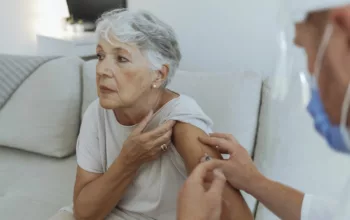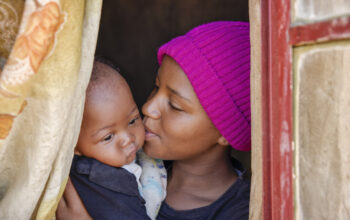Why vaccines and continued vaccine innovation matter today and for the future?

Every year during World Immunization Week we take the time to celebrate the impact of vaccines, but this year there is heightened concern and apprehension around the status of vaccination programs around the world.
The big catch-up year
Recent pandemic disruptions to health and education systems have led to significant drops in childhood vaccination numbers, especially for vulnerable newborns.1 According to the WHO, this represents “the largest sustained decline in childhood vaccinations in approximately 30 years”2 and could threaten the significant progress made in child health and child survival rates over the past three decades.
We must urgently catch up the millions of zero-dose children from pandemic years and restore the performance of childhood routine immunization programs to get back on track and avoid unnecessary outbreaks of debilitating diseases like measles, yellow fever, diphtheria, polio and pertussis, and other outbreak prone diseases.
HPV vaccination rates in teenagers and young adults have also fallen, underscoring the need for young girls to be given the opportunity to be protected from cervical cancer.
Strengthening life course immunization programs
The Covid pandemic was also a stark reminder of the importance of immunization for adults and the more vulnerable members of our communities. Vaccines can play a key role in healthy ageing by protecting older people who have a higher chance of serious illness and hospitalization due to vaccine-preventable diseases and infections like pneumonia or flu.
A broadening of focus beyond childhood vaccines to vaccination programs for all ages and all groups is vital for future pandemic preparedness and global health security. Indeed, to ensure more people can benefit from the protection of vaccines throughout their lives, each country should strengthen life-course immunization programs through primary healthcare to improve health system readiness and resilience as a cornerstone to achieve UHC and prepare for outbreak response.
The world’s most powerful public health tool
Vaccines underpin our global health security by preventing and controlling over 30 infectious diseases, reducing unnecessary hospitalizations and controlling infectious disease outbreaks. We should not forget that they are one of the world’s most powerful and cost-effective public health tools available and have successfully helped to eradicate, eliminate, and manage many deadly infectious diseases. Smallpox has been eradicated and polio is nearly gone. Cervical cancer could become the first cancer to be eliminated.
Vaccines also play a critical role in combatting antimicrobial resistance: they can reduce antibiotic use by preventing bacterial infections in the first place, such as with the pneumococcal and meningococcal vaccines, and can also prevent viral infections such as flu, which can provoke secondary infections requiring antibiotics.
Continued vaccine innovation
We are determined to help millions more through continued investment, together with our research partners in vaccine innovation, to find new and improved vaccines for dozens of diseases, including RSV, HIV, TB, Ebola, and diarrhoea-causing diseases. The number of approved vaccines has significantly grown over time. Today, there are hundreds of vaccine candidates in development3, many of which aim to tackle diseases for which there are no current vaccines. 4 To allow continuous innovation to happen, a dynamic and well-funded research ecosystem that provides regulatory flexibilities, and a supportive intellectual property framework is paramount.
“Innovations developed for the COVID-19 response and a pipeline of vaccines and innovative technologies and platforms will support actions to strengthen vaccination across the life course.”5
But all this innovation will be for nothing if people don’t feel confident enough to get vaccinated, or if some of the people getting vaccinated today become more hesitant. We need to lay the groundwork today to address misinformation, disinformation, and convenience, for the benefit of global health in the years to come.
We will continue to invest in vaccine innovation while working with global health partners to ensure routine immunization programs get back on track, life course immunization approaches are embedded in national health plans, and equitable access to vaccines is provided to protect the future of millions of children, their families, and communities.
Author






